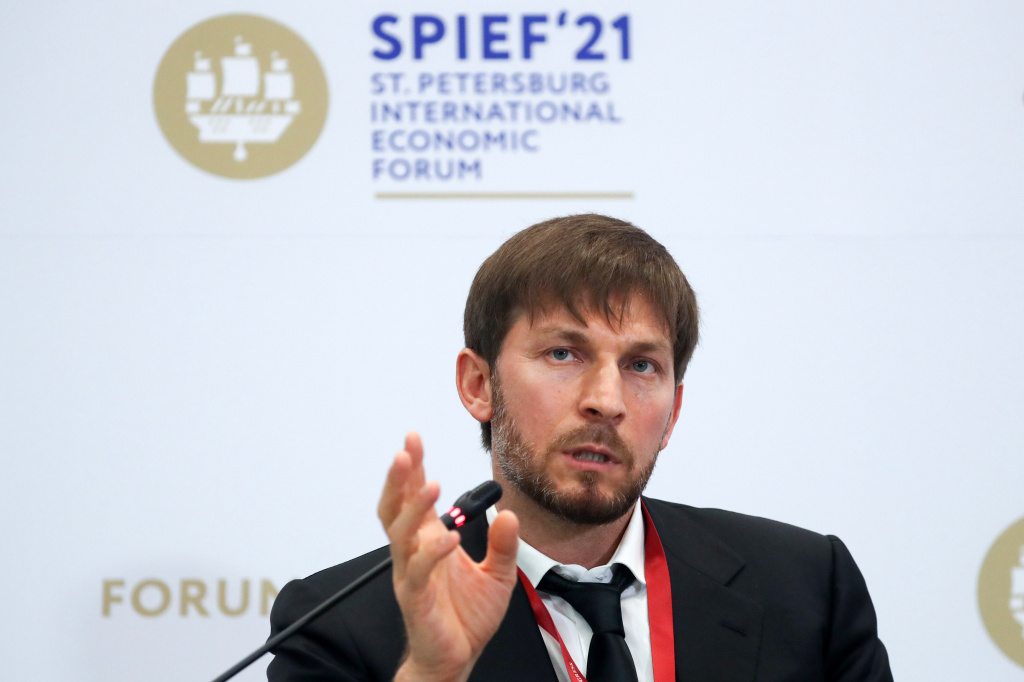
Who Will Pay for Today’s Environmental Challenges?
KEY CONCLUSIONS
The entire world is facing the issue of responsibility for environmental damage and of penalties, and with increasing frequency, stimulating measures are suggested
“The question begs to be asked: who will foot the bill. And here the carbon border adjustment comes into action. Will the exporter country pay, or will the European Union pay, and the countries will have a choice: either each will institute its own carbon pricing or not. Otherwise, we are going to have two systems: a WTO-based one and an alternative one,” Andrei Marcu, Founder, Executive director, The European Roundtable on Climate Change and Sustainable Transition (ERCST).
“The question therefore is not only who is going to pay, but also who is going to get paid, because indeed financial markets act far quicker. […] Every government, be it Europe or Russia, will naturally introduce regulations. Today, we broach with far greater frequency the punitive measures in the good sense of the word, such as fines, taxes, etc. But I believe we will also have to think hard about stimulating measures. […] We will need to introduce some financing programmes,” Aleksey Matveev, Deputy Chairman of the Board, Gazprombank.
“Market effectiveness that is not always perfect, as we all know, and legislative ineffectiveness is also something for us to think about,” Andrei Marcu, Founder, Executive Director, The European Roundtable on Climate Change and Sustainable Transition (ERCST).
“In the next 30 years, the Russian Federation should have lower emissions than the European Union, we know that already. We are working on it. […] As of today, Russia has cut the equivalent of 41 billion tons of CO2 emissions – this is the world’s highest figure if we take data by country,” Ruslan Edelgeriyev, Advisor to the President of the Russian Federation, Special Presidential Representative on Climate Issues.
“We will have a huge discussion on fairness and justice of the [payments] issue between various population groups: between manufacturers and consumers, building owners and residents. I think we have to focus on it more because failure to arrive at a solution will also affect Russia–EU relations,” Markus Ederer, Ambassador of the European Union to the Russian Federation.
PROBLEMS
Closing off a market is not conducive to improving the environment; the issue of “social justice” remains open
“The European market is closing off. It upsets us. Why does it upset us? On the one hand, Europe us calling upon us to be ambitious, but closing off the market is not conducive to a global reduction in greenhouse gas,” Ruslan Edelgeriyev, Advisor to the President of the Russian Federation, Special Presidential Representative on Climate Issues.
“There is climate justice. Going back to the Paris Climate Accords, to the Paris Convention, if you apply the ‘polluter pays’ principle, then industrial countries have to pay more than countries that do not emit that much CO2. […] The issue that becomes very important today, and it has already been mentioned, is social justice. If you levy the CO2 emissions tax on everyone, then it hits the poor, the lower classes the hardest, and it affects the upper classes just a little,” Markus Ederer, Ambassador of the European Union to the Russian Federation.
“Let’s take mortality. Europe loses half a million people annually to environmental pollution, to air pollution alone. […] China loses nearly a million and a half. And this is not greenhouse gas. […] But there is great danger that once we plunge into decarbonization, we will receive huge … economic damage that will stop economic growth and economic development,” Boris Porfiriev, Scientific Director, Institute of Economic Forecasting of the Russian Academy of Sciences.
“Of course, we did not escape the economic problems of the past. Our round table today is called ‘Who Will Pay for Today’s Environmental Challenges?’ And we are going to have to pay for problems created back in the Soviet times. I mean the mining and metallurgy plant that left mercury waste after being shut down. And since there are rivers all around, and the soil can be washed away in an unfortunate turn of events, we have several villages with the population of over 30,000 people in an unsafe situation,” Oleg Khorokhordin, Head of the Altai Republic.
SOLUTIONS
Technological solutions, investment, and pooling efforts will help resolve environmental issues that Russia and European countries face
“Pooling the efforts of Europe and Russia. There is room for jointly inventing these technologies, we can use various systems to localize production, we can create a joint venture in Russia and in other countries. This is environmental cooperation. This is what we very much need I believe,” Ernesto Ferlenghi, Chairman of the Energy Committee, Chairman of the Steering Committee of the Green Initiative Project, Association of European Businesses.
“If we take a ton of SMW at a dump site, it ‘generates’ about a million [tons] of carbon dioxide a year. If we take processed waste, there are only ‘tail-ends’ there that in essence do not ‘generate’ this gas; state-of-the-art landfills are the technological solutions,” Dmitry Yuriev[T1] , Deputy Chairman for Environment and Natural Resources, State Council of Russia; Advisor to the General Director of Russian Environmental Operator Public Law Company.
“If we indeed are talking climate, then what matters for climate is accumulated greenhouse gas emissions. This is a matter of principled importance. Not achieving the notorious zero, but accumulated emissions. In this respect, the goals set by the President are particularly relevant, and with such goal-setting Russia can reach this objective by implementing a series of technological steps that we have also discussed, provided, of course, there is sufficient investment and a good investment programme. This is that very technological re-equipment and that very structural modernization we need,” Boris Porfiriev, Scientific Director, Institute of Economic Forecasting of the Russian Academy of Sciences.
Russia needs to launch its own carbon market and keep the money in the country
“As of today, in order to be economically successful, the Russian Federation needs to launch its national carbon market. Today, there is no such market. There are two ways: it should be, can be mandatory and voluntary. They [European countries] have both mandatory and voluntary markets. This is fully justified and perfectly right. Today, when we are taking the first step in carbon regulations, we need from the very outset to take into account the highest requirements, the highest standards so that our trade system, our activities, our carbon units could ultimately be well-founded and reliable,” Ruslan Edelgeriyev, Advisor to the President of the Russian Federation, Special Presidential Representative on Climate Issues.
“Today, in accordance with instructions from the President of the Russian Federation, there is the objective of developing a federal environmental monitoring project. The greenhouse block is part of this monitoring developed by Russian Environmental Operator, by the Ministry of Natural Resources and Environment of the Russian Federation. All the aggregated accumulated information will be collected in this system. In future, it will make us prepared for launching this pilot project in Russia,” Dmitry Yuriev[T2] , Deputy Chairman for Environment and Natural Resources, State Council of Russia, Advisor to the General Director of Russian Environmental Operator Public Law Company.
“Money, financial resources should not go to other jurisdictions. They would stay in the country. […]
I think the government and business should work together. We should implement such climate projects so that would make accumulated carbon units circulate globally. Provided, as I suggest, that they should from the outset comply with the high international standards, and then they will be highly ranked globally, and then they will be in demand, then they will be within the price range that is generally in demand today,” Ruslan Edelgeriyev, Advisor to the President of the Russian Federation, Special Presidential Representative on Climate Issues.
For more information, visit the ROSCONGRESS.ORG Information and Analytical System.








